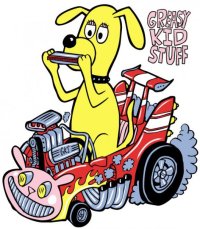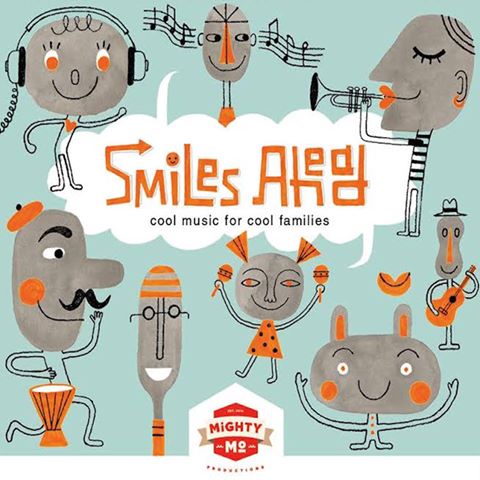I saw on Twitter yesterday that the radio show Greasy Kid Stuff was coming to an end this weekend, and I thought it was important to publicly celebrate the show before it permanently went off the air.
Longtime readers are probably familiar with GKS, but if you’re not, the show was started 22 (!) years ago by Belinda Miller and Hova Najarian, airing on legendary New York station WFMU long before the couple became parents. From the beginning, Belinda and Hova -- it was always Belinda and Hova, their last names have mostly been an afterthought -- were less interested in “kids music” as much as they wanted to play weird music they thought kids would enjoy as adults. They weren’t the only kids music show (and they probably would issue with the idea that it was mostly for kids, but they were definitely the oddest, a mix of Dr. Demento, Sesame Street, and 120 Minutes. And as kids music moved into a more kindie direction, they certainly shined a spotlight on artists that fit their somewhat off-center sensibility, but never fully embraced the full-on conventional kids music world.
That was, in my view, to their credit and benefit. As I noted in my review of their third and final compilation of music (yep, they released three albums in total, all worth tracking down), I think kids music embraced Belinda and Hova’s approach as much as Belinda and Hova embraced kids music. They weren’t the only radio outlet that took that view, but on the whole I think they did it longer than anyone else.
After moving across the country to Portland, Oregon in 2004 (and also becoming parents), Belinda and Hova eventually moved their show to 94.7 FM in Portland and more recently XRAY.FM. (Why am I noting those links? Because you can still find playlists, at least for WFMU and XRAY.FM, online if you want to see how unique those playlists are.) But after 22 years, they’ve decided to hang up their headphones and microphones. As they put it in a Facebook announcement earlier this month, they have “decided we’d like to see what it’s like to have regular weekends.”
I can’t say I blame them. Twenty-two years is a long time to work on anything, and they have earned the right to break out the bedazzler and make some art (Belinda’s goal). But the kids music community owes Belinda and Hova a big round of thanks for the many years of playing their music and for supporting the idea that kids can embrace music outside of the mainstream.
Greasy Kid Stuff logo by Musho Rodney Alan Greenblat



















